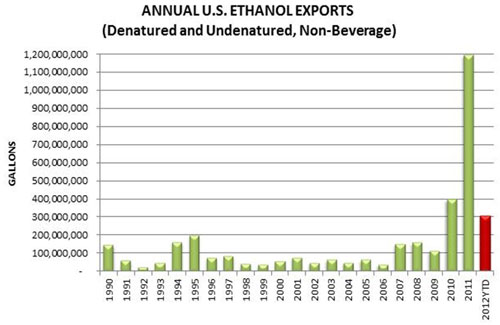The future of using corn stover for advanced biofuels was one of the discussion topics at last week’s Corn Utilization Technology Conference in Indianapolis.
 Nathan Mosier with the Department of Agricultural & Biological Engineering at Purdue University, told the conference that the corn refining industry has done a great job of using the corn kernel to create various value-added products. He’s working on similar developments with corn stover “to break it into its constituents in a way that allows us to add value and produce more products that can be sold.”
Nathan Mosier with the Department of Agricultural & Biological Engineering at Purdue University, told the conference that the corn refining industry has done a great job of using the corn kernel to create various value-added products. He’s working on similar developments with corn stover “to break it into its constituents in a way that allows us to add value and produce more products that can be sold.”
Mosier says he’s been working with several companies, like Mascoma, that are getting close to commercial applications that would be used to make cellulosic ethanol. “We’re making a lot of advances in being able to launch the very first products, but I think there’s a lot of opportunities for higher value products that may be lower volume, but in the context of a biorefinery where we can use materials like corn stover instead of petroleum to make not only fuels, but specialty chemicals, plastics and polymers.”
Listen to an interview with Nathan Mosier from CUTC here: Interview with Nathan Mosier


 The
The 






